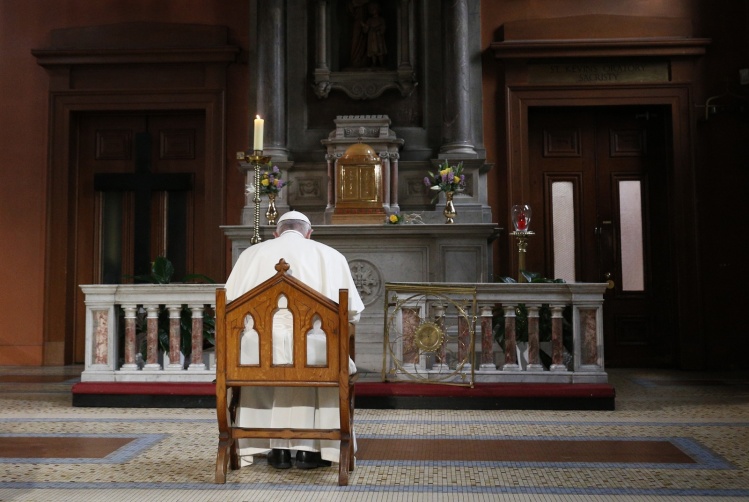As the Vatican’s press-office director, Alessandro Gisotti, points out, the Vatican meeting is only the latest stage in a long-maturing response. If you thought this was just Rome’s attempt to seize the initiative after the Pennsylvania grand-jury report or the Cardinal McCarrick scandal, forget it. The Vatican’s editorial director, Andrea Tornielli, insists that the issue will be looked at from a “global perspective,” not “solely European and American.” This is just as much about Africa and Asia and Latin America, where they don’t think they have an abuse crisis, but they do.
Still, while Francis may have wanted to “deflate” expectations, he was not saying the meeting does not matter. He thinks it matters very much—just not in the way people might think it does. Before talking about new protocols and procedures, the pope said on the plane, there is something else the bishops have to do: “We must become aware.” For Francis, there is no such thing as simply seeing; what you see depends on how you see, and what you place at the center of your looking. Changing that focus is the task of conversion. Tornielli says it directly: “Norms, laws, codes and procedures…can never be enough if the mentality and the hearts of those who are called to apply them do not change.” Hence, he says, Pope Francis “continues to point out the path of conversion.” Fr. Federico Lombardi, the moderator of the meeting, says that the penitential prayer during the summit will “establish in sincere conversion…true awareness of the suffering and damage suffered by the victims” and thence “the reform of relations within the church.”
This is how Francis, after a difficult 2018 and above all his own experience of misjudgment and mismanagement in the case of Chile, has come to see the abuse crisis. It is much deeper than it looks, for it involves a turning-away from Christ in his people. And it cannot be repaired merely by procedural or judicial mechanisms, necessary as these are. It will require a radical transformation—a turning-back to Christ.
We’re so used to hearing that Francis is “behind the curve” on the abuse issue. In truth, he is well ahead of it. While most Catholics, not least bishops and religious orders, remain fixated on cleaning up the institution, demonstrating that it is now transparent and accountable and regulated by new measures, the pope has grasped that keeping the focus on the institution in this way is precisely the problem. This is apparent in the texts he addressed to the Chilean bishops and the people of God last year, which in turn draw on his meditations on institutional desolation as a Jesuit back in the 1980s. Both those texts of three decades ago and last year’s letters have been collected and commented on by his Jesuit collaborators in Rome, Fr. Antonio Spadaro and Fr. Diego Fares, in a new book published in Italian and Spanish, Las Cartas de la Tribulación (“The Tribulation Letters”). If the book had come out later, it would doubtless have included Francis’s letter to the U.S. bishops at the start of their retreat at Mundelein seminary.








Total Comments:0